Introduction to the Different Types of Prepping Communities
Find Your Tribe: The Ultimate Guide to Prepper Groups!
Table of Contents
- Overview
- Neighborhood Prepper Groups
- Family-Based Prepping Groups
- Faith-Based Prepping Communities
- Homesteading & Rural Prepping Communities
- Online Prepping Communities and Forums
- Specialized Prepping Groups (Skills-Based)
- Mutual Assistance Groups (MAGs)
- Survivalist Communities
- Financial Prepping Groups
- Choosing the Right Prepping Community
- Conclusion
Overview
Prepping communities offer support, shared resources, and a sense of security in times of uncertainty. This guide explores various types of prepping groups and how they differ based on structure, goals, and the needs of their members. From neighborhood prepper groups to online prepping communities, this series will help you find or build a group that aligns with your approach to preparedness.
Neighborhood Prepper Groups
What Are They?
Neighborhood prepper groups are organized communities of individuals or families who come together to prepare for potential emergencies, disasters, or situations that may require self-sufficiency and resilience.
 Unlike isolated prepping efforts, these groups emphasize cooperation and shared resources within a local area. Members of a neighborhood prepper group typically share a commitment to emergency preparedness and work together to develop strategies for mutual aid, security, food and water storage, communication, and other essential survival skills. They often conduct regular meetings, training sessions, and drills to ensure that all members are prepared and know how to respond in a crisis.
Unlike isolated prepping efforts, these groups emphasize cooperation and shared resources within a local area. Members of a neighborhood prepper group typically share a commitment to emergency preparedness and work together to develop strategies for mutual aid, security, food and water storage, communication, and other essential survival skills. They often conduct regular meetings, training sessions, and drills to ensure that all members are prepared and know how to respond in a crisis.
The concept of neighborhood prepper groups is rooted in the idea that there is strength in numbers. In times of disaster, whether natural or man-made, communities that are already organized and prepared are better equipped to handle challenges.
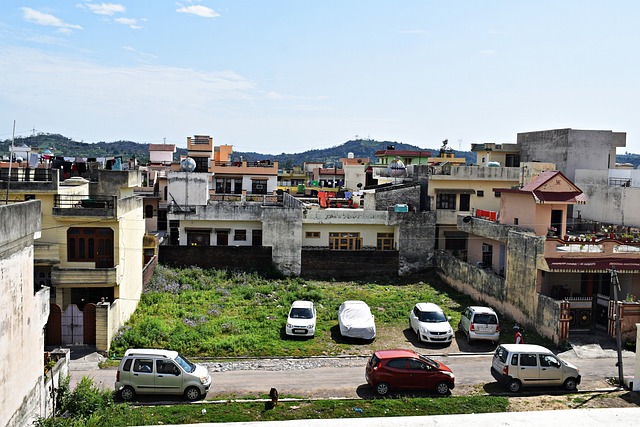 This collective approach can include sharing food, tools, and medical supplies, as well as skills such as gardening, first aid, and home repair. By pooling their resources, members can reduce individual costs and increase the overall preparedness level of the community. Moreover, these groups can establish local communication networks to ensure that information and assistance are readily available, even when traditional communication channels may fail.
This collective approach can include sharing food, tools, and medical supplies, as well as skills such as gardening, first aid, and home repair. By pooling their resources, members can reduce individual costs and increase the overall preparedness level of the community. Moreover, these groups can establish local communication networks to ensure that information and assistance are readily available, even when traditional communication channels may fail.
For preppers and homesteaders, neighborhood prepper groups offer several benefits. First, they provide a safety net in case individual preparations are insufficient. For example, a homesteader who primarily focuses on growing food might lack expertise in medical care, while a neighbor could be trained in first aid or herbal remedies.
In such cases, group members can complement each other’s skills, creating a more resilient and versatile community. Additionally, working as a group allows for the delegation of tasks, so that essential responsibilities like security, food production, and water purification can be managed more effectively without overwhelming any one individual.
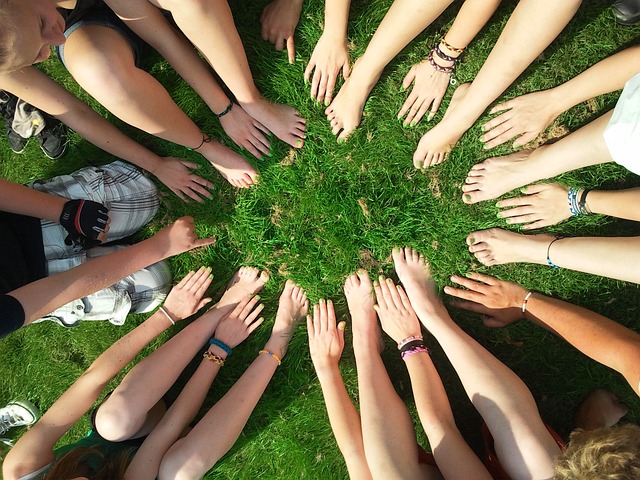 The importance of neighborhood prepper groups also lies in fostering a sense of community and trust. During crises, the social fabric often becomes strained as people struggle to meet their basic needs. Having a pre-established group with strong bonds ensures that there is a reliable support system in place, reducing panic and improving cooperation. Moreover, a well-organized prepper group can deter crime and looting, as it presents a unified front that is better equipped to defend its members and resources.
The importance of neighborhood prepper groups also lies in fostering a sense of community and trust. During crises, the social fabric often becomes strained as people struggle to meet their basic needs. Having a pre-established group with strong bonds ensures that there is a reliable support system in place, reducing panic and improving cooperation. Moreover, a well-organized prepper group can deter crime and looting, as it presents a unified front that is better equipped to defend its members and resources.
Ultimately, neighborhood prepper groups embody the principle that no one can prepare for everything on their own. While individual preparedness is essential, building connections with like-minded neighbors enhances overall resilience.
For homesteaders, who may already have a foundation of self-sufficiency, joining or forming a neighborhood prepper group can expand their capabilities and security. In uncertain times, these groups can mean the difference between isolation and solidarity, scarcity and abundance, and, in some cases, life and death.
Characteristics
- Small Scale & Local: Limited to people within a specific neighborhood or community.
- Shared Resources: Tools, first aid supplies, food storage, and water purification systems.
- Emphasis on Community Trust: Knowing and trusting neighbors is crucial for cooperation and safety.
Pros and Cons
- Pros: Proximity of members, quick communication, sense of community.
- Cons: Limited skills/resources, potential lack of alignment on preparedness goals.
Back to Top
How to Start a Neighborhood Prepper Group
Starting a neighborhood prepper group can be a great way to build community resilience and ensure that you and your neighbors are prepared for emergencies. The first step is to gauge interest within your neighborhood. Begin by speaking informally with friends, family, and neighbors to see if they share your concerns about preparedness.
You can also use local social media groups, community boards, or neighborhood apps to invite others to an initial meeting. Clearly communicate the purpose of the group—building a local support network for emergencies, sharing skills, and pooling resources.
Once you have a few interested people, plan a casual introductory meeting. Choose a location that’s accessible and comfortable, like a community center, park, or someone’s backyard. During this first gathering, discuss common goals and concerns, such as natural disaster preparedness, power outages, or food and water security.
Encourage open discussion so everyone can express their interests and ideas. Use this opportunity to highlight the benefits of a prepper group, such as shared resources, skills training, and creating a reliable support network during crises.
After your initial meeting, set up regular gatherings to discuss specific topics, share knowledge, and plan activities. Consider inviting local experts to speak on essential subjects like first aid, emergency power systems, or home security. Organize group activities, such as food preservation workshops, survival skills training, or even practice drills for specific scenarios.
By maintaining consistent communication and engagement, your neighborhood prepper group can grow into a robust network of people who are well-prepared to help one another in times of need.
Family-Based Prepping Groups
What Are They?
Family-based prepping groups are units that center around immediate or extended family members who collectively prepare for emergencies, disasters, and other unforeseen challenges. Unlike neighborhood groups that often consist of unrelated individuals, family-based prepping groups focus on building resilience within a single family network.
 These groups leverage the natural bonds, trust, and cohesion found in families to create a unified approach to preparedness. From stockpiling essential supplies to developing skills like first aid, gardening, or self-defense, family members work together to ensure that everyone is equipped to face a crisis.
These groups leverage the natural bonds, trust, and cohesion found in families to create a unified approach to preparedness. From stockpiling essential supplies to developing skills like first aid, gardening, or self-defense, family members work together to ensure that everyone is equipped to face a crisis.
The strength of family-based prepping groups lies in the familiarity and trust that exists within the family unit. Members know each other’s strengths, weaknesses, and health needs, which allows for more tailored and efficient preparation. For instance, a family might prepare special medical kits to address specific health conditions or dietary needs of certain members, something that might be more challenging in a larger, non-family group.
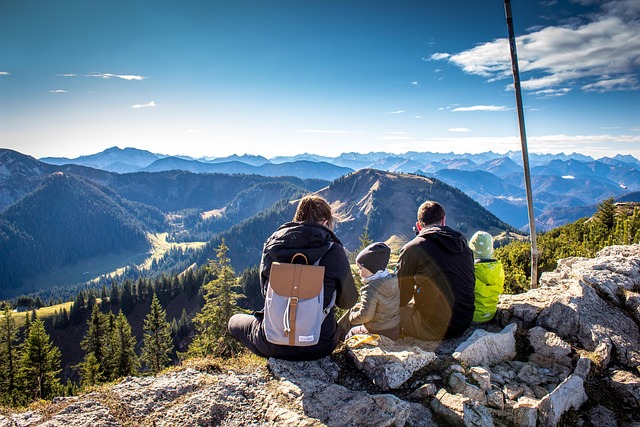 Additionally, families are often more comfortable with open communication, which can lead to honest discussions about preparedness plans, responsibilities, and expectations. This level of transparency helps ensure that everyone is on the same page when it comes to emergency protocols.
Additionally, families are often more comfortable with open communication, which can lead to honest discussions about preparedness plans, responsibilities, and expectations. This level of transparency helps ensure that everyone is on the same page when it comes to emergency protocols.
For preppers and homesteaders, family-based prepping groups can be particularly advantageous. Homesteaders, who often live more self-sufficient lifestyles, can involve every family member in the day-to-day tasks that support preparedness. Children can be taught essential skills such as gardening, animal care, or basic woodworking from a young age, making them valuable contributors to the family’s self-sufficiency.
 Adults can divide tasks based on their skills; for example, one might focus on food preservation while another handles home repairs or security measures. This division of labor within a trusted group makes it easier to achieve a higher level of preparedness than would be possible alone.
Adults can divide tasks based on their skills; for example, one might focus on food preservation while another handles home repairs or security measures. This division of labor within a trusted group makes it easier to achieve a higher level of preparedness than would be possible alone.
Furthermore, family-based prepping groups foster a sense of responsibility and teamwork. During a crisis, it’s critical for each member to know their role and understand how to support one another. Families that prep together can create detailed plans for various scenarios, such as evacuations, sheltering in place, or surviving off-grid.
By practicing these plans regularly, they ensure that even the youngest or oldest members know what to do. This preparedness minimizes confusion and panic, which are common during emergencies.
Another key benefit is that family-based prepping groups can easily scale their preparedness over time. Families often grow, with new members being born or married into the group, and these additions bring new skills, resources, and perspectives.
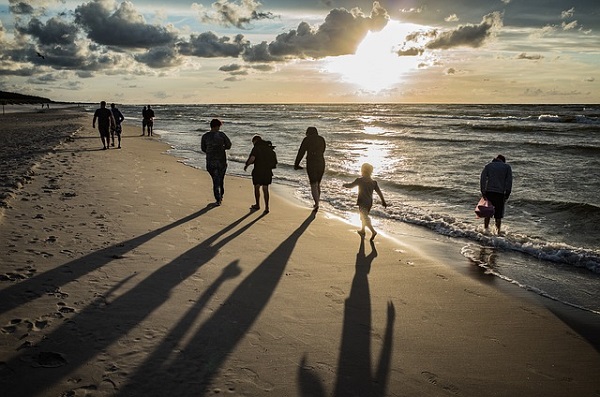 Preparing as a family also means that lessons, skills, and traditions can be passed down through generations, creating a culture of preparedness. This can be particularly beneficial for homesteaders, who often rely on generational knowledge about farming, animal husbandry, and other self-sustaining practices.
Preparing as a family also means that lessons, skills, and traditions can be passed down through generations, creating a culture of preparedness. This can be particularly beneficial for homesteaders, who often rely on generational knowledge about farming, animal husbandry, and other self-sustaining practices.
In summary, family-based prepping groups are a powerful approach to emergency preparedness. They combine the natural strengths of family unity, trust, and shared responsibilities to create a cohesive and efficient system of readiness.
For homesteaders, this model aligns perfectly with the principles of self-sufficiency and living off the land, as it ensures that every member is equipped and prepared to contribute. Ultimately, family-based prepping not only strengthens a family’s ability to survive a crisis but also enhances their capacity to thrive in challenging times by relying on each other and their collective skills.
Characteristics
- Self-Reliant: Focused on ensuring the family’s survival with minimal external support.
- Skill Development: Homeschooling, gardening, hunting, and first aid.
- Multi-Generational Planning: Family members contribute based on age and ability.
Pros and Cons
- Pros: Strong commitment, shared resources, high trust level.
- Cons: Limited skills pool, difficulty handling large-scale needs.
Back to Top
How to Start Family-Based Prepping Group
Starting a family-based prepping group involves bringing together relatives who share a common interest in preparedness. Begin by having an open discussion with close family members about the importance of being prepared for emergencies, such as natural disasters, economic instability, or other crises.
Emphasize how family-based prepping can strengthen ties, ensure safety, and offer peace of mind. Discuss what each family member’s concerns are and identify common goals to align the group’s focus.
Once there is a shared understanding, arrange a family meeting to plan out your prepping strategy. This should include identifying individual skills and resources that each family member can contribute. For example, one person might have knowledge of first aid, while another might have skills in gardening or DIY repairs.
Designate roles based on these strengths, and discuss how responsibilities will be divided in an emergency situation. Make sure to consider everyone’s needs, including young children, the elderly, and pets, and establish clear communication plans for staying in touch during a crisis.
To keep the group active and engaged, schedule regular family prep days. Use these occasions to practice skills, review emergency plans, and assess supplies. Activities could include first aid training, food preservation sessions, or building emergency kits together.
Encourage each family member to take on a specific area of responsibility, ensuring that everyone is involved and knows what to do when needed. Over time, a well-prepared family group will be more resilient, confident, and ready to face whatever challenges come their way.
Faith-Based Prepping Communities
What Are They?
Faith-based prepping communities are groups of individuals who come together to prepare for emergencies and disasters, united by a shared religious belief or spiritual outlook. These communities are rooted in the principles of faith, trust, and mutual support, with members often drawing strength from their shared values and teachings.
 Unlike other prepping groups, which may focus primarily on logistics and survival skills, faith-based communities emphasize the spiritual aspects of preparedness, believing that their faith can provide guidance, hope, and resilience during challenging times. Members often participate in regular gatherings, prayers, and discussions, in addition to their preparedness activities, to ensure both spiritual and practical readiness.
Unlike other prepping groups, which may focus primarily on logistics and survival skills, faith-based communities emphasize the spiritual aspects of preparedness, believing that their faith can provide guidance, hope, and resilience during challenging times. Members often participate in regular gatherings, prayers, and discussions, in addition to their preparedness activities, to ensure both spiritual and practical readiness.
One of the main advantages of faith-based prepping communities is the strong sense of trust and solidarity that comes from shared beliefs. This spiritual bond can create a deeper level of commitment and cooperation among members, making it easier to coordinate plans, distribute responsibilities, and support one another during crises.
 The teachings of many faiths encourage helping neighbors and providing for those in need, which naturally extends into the realm of preparedness. Members may stockpile food, water, medical supplies, and other essentials not just for themselves but with the intention of sharing them with others in the community or providing aid to those outside the group who might be struggling. This spirit of generosity and community care sets faith-based prepping groups apart, as their preparation often reflects a broader mission of service.
The teachings of many faiths encourage helping neighbors and providing for those in need, which naturally extends into the realm of preparedness. Members may stockpile food, water, medical supplies, and other essentials not just for themselves but with the intention of sharing them with others in the community or providing aid to those outside the group who might be struggling. This spirit of generosity and community care sets faith-based prepping groups apart, as their preparation often reflects a broader mission of service.
For preppers and homesteaders, faith-based prepping communities offer unique benefits that go beyond the practical. Homesteaders, who may already practice self-sufficiency and sustainability, can find a supportive network that aligns with their values and provides moral support.
 Preparing for difficult situations can be daunting, and having a community that shares the same beliefs can make the process less intimidating. For example, a faith-based community might include regular spiritual practices as part of their gatherings, helping to maintain a sense of peace, hope, and resilience even when planning for worst-case scenarios. This can be particularly comforting for those who find strength in their faith during times of uncertainty.
Preparing for difficult situations can be daunting, and having a community that shares the same beliefs can make the process less intimidating. For example, a faith-based community might include regular spiritual practices as part of their gatherings, helping to maintain a sense of peace, hope, and resilience even when planning for worst-case scenarios. This can be particularly comforting for those who find strength in their faith during times of uncertainty.
Faith-based prepping communities also place a strong emphasis on ethical considerations and moral preparedness. For many, it’s not just about surviving but about doing so in a way that aligns with their principles. This might include adhering to certain dietary laws, observing days of rest, or practicing ethical resource management.
Such groups often have a structured approach to how they store and use resources, ensuring that their practices are sustainable, just, and respectful of their faith’s teachings. Additionally, they might organize workshops and training sessions that integrate survival skills with spiritual teachings, offering holistic preparation that addresses both the physical and mental well-being of members.
 Another significant aspect of faith-based prepping communities is the role they play in fostering resilience and mental health. Disasters and emergencies can be stressful and isolating, but belonging to a group that shares one’s faith can provide emotional and spiritual comfort.
Another significant aspect of faith-based prepping communities is the role they play in fostering resilience and mental health. Disasters and emergencies can be stressful and isolating, but belonging to a group that shares one’s faith can provide emotional and spiritual comfort.
Through prayer, meditation, or other spiritual practices, members can find strength, hope, and purpose, even in the midst of hardship. Faith-based prepping communities often emphasize the importance of caring for the whole person, including their spiritual needs, and this can make a substantial difference in how individuals cope with crises.
In essence, faith-based prepping communities blend the practical aspects of emergency preparedness with the spiritual support of a shared belief system. For preppers and homesteaders, these communities provide a foundation of trust, cooperation, and ethical living, enhancing both individual and collective resilience.
They not only prepare for emergencies but do so in a way that fosters unity, compassion, and service. In times of crisis, this approach can make a profound difference, helping members to not only survive but also maintain their sense of humanity, purpose, and faith.
Characteristics
- Faith-Centered Approach: Prepping guided by religious teachings and values.
- Community Cohesion: Strong bond among members based on shared beliefs.
- Moral and Ethical Code: Emphasis on helping others and supporting fellow members.
Pros and Cons
- Pros: Strong sense of unity, built-in trust, shared moral framework.
- Cons: May be exclusive to specific faiths, can limit diversity of thought or resources.
Back to Top
How to Start a Faith-Based Prepping Community Group
Starting a family-based prepping group begins with having a conversation about the importance of being prepared for emergencies. It’s essential to get everyone on the same page by explaining the benefits of family preparedness, such as safety, security, and peace of mind.
Begin by discussing potential scenarios, like natural disasters, power outages, or economic issues, and outline how preparedness can help the family handle these situations more effectively. The key is to ensure everyone understands the purpose and feels involved in the planning process.
Once there is a mutual understanding, organize a family meeting to plan your preparedness strategy. Start by identifying each family member’s skills, resources, and strengths. For instance, one person might be knowledgeable about first aid, while another could excel in gardening or home repairs.
Designate roles based on these abilities, so everyone has a clear understanding of their responsibilities in case of an emergency. This is also a good time to discuss the specific needs of each family member, including children, elderly relatives, or pets, and how to address them.
To keep the group engaged, set up regular family prep sessions where everyone can learn and practice essential skills. These gatherings can include activities such as first aid training, emergency kit assembly, or learning to preserve food.
It’s also important to review and update your emergency plans periodically, ensuring that everyone remains familiar with their roles and responsibilities. By working together, your family can build a strong, supportive network that enhances safety and resilience in times of crisis.
Homesteading & Rural Prepping Communities
What Are They?
Characteristics
- Self-Sufficiency: Agriculture, livestock, water management, and renewable energy.
- Isolation: Rural location allows for privacy and control.
- Focus on Skills: Skills in farming, carpentry, mechanics, and alternative medicine.
Pros and Cons
- Pros: High self-sufficiency, sustainable practices, fewer outside dependencies.
- Cons: Often isolated from outside help, requires extensive skills and resources.
Back to Top
How to Start a Homesteading & Rural Prepping Community Group
Starting a homesteading and rural prepping community group begins with a clear vision of what you want to achieve. Define the purpose and focus of the group—whether it’s to share skills related to sustainable farming, animal husbandry, and off-grid living, or to create a support network for self-sufficiency in rural areas.
Identify the core values and goals, such as promoting organic gardening, preserving traditional skills, or building a local network for bartering and resource-sharing. This clarity will help attract people who share your vision and are interested in building a strong, resilient rural community.
Begin by reaching out to others who might be interested, using local community boards, social media, and agricultural events as platforms to spread the word. Organize an introductory meeting to discuss the group’s purpose, listen to potential members’ ideas, and gauge interest. This meeting can serve as a foundation to start building trust and collaboration.
Discuss how the group can help members achieve self-sufficiency, from sharing seeds and tools to hosting workshops on topics like beekeeping, solar power, and food preservation. Encourage members to bring their unique skills to the table, which will foster a cooperative atmosphere where everyone contributes.
Once you have a core group, set up a structure for regular meetups and activities. You might choose to have monthly gatherings where members can exchange resources, teach workshops, or work together on community projects like building greenhouses or installing water systems.
Consider forming committees to focus on different aspects, such as gardening, livestock care, alternative energy, or home repairs. By dividing tasks and responsibilities, you ensure that everyone plays a part in the community’s success. Over time, this structure will help the group grow, develop shared resources, and create a strong network that enhances self-sufficiency and resilience for everyone involved.
Online Prepping Communities and Groups
What Are They?
Online prepping communities and forums are digital platforms like this where individuals interested in emergency preparedness, self-sufficiency, and survivalism come together to share information, resources, and experiences. These communities provide a virtual space for preppers and homesteaders to connect, learn, and exchange ideas, regardless of their geographic location.
Users can participate in discussions on a wide range of topics, from food storage and water purification to off-grid living, alternative energy, and self-defense. With the rise of digital communication, these online platforms have become essential hubs for those seeking to enhance their knowledge and preparedness skills.
 One of the primary benefits of online prepping communities is the accessibility of information. Newcomers to prepping and homesteading can quickly learn from the experiences of more seasoned members, gaining valuable insights that might otherwise take years to acquire. Online forums are often rich with guides, tutorials, and step-by-step instructions on various survival techniques and DIY projects, making it easy for users to start or improve their prepping journey.
One of the primary benefits of online prepping communities is the accessibility of information. Newcomers to prepping and homesteading can quickly learn from the experiences of more seasoned members, gaining valuable insights that might otherwise take years to acquire. Online forums are often rich with guides, tutorials, and step-by-step instructions on various survival techniques and DIY projects, making it easy for users to start or improve their prepping journey.
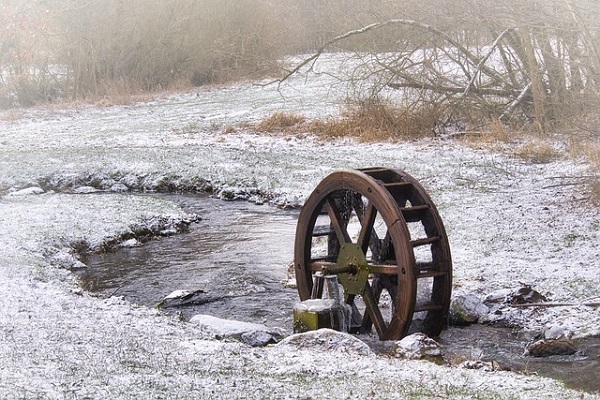 For example, someone interested in building a rainwater collection system can find detailed plans, equipment recommendations, and troubleshooting tips, all contributed by community members who have already completed similar projects. This exchange of knowledge can accelerate learning and help preppers avoid common mistakes.
For example, someone interested in building a rainwater collection system can find detailed plans, equipment recommendations, and troubleshooting tips, all contributed by community members who have already completed similar projects. This exchange of knowledge can accelerate learning and help preppers avoid common mistakes.
These online communities also serve as a vital source of support and encouragement. Preparing for emergencies can sometimes feel overwhelming, and the ability to connect with like-minded individuals can provide a sense of belonging and reassurance. Users often share stories about their successes and challenges, offering advice and motivation to others.
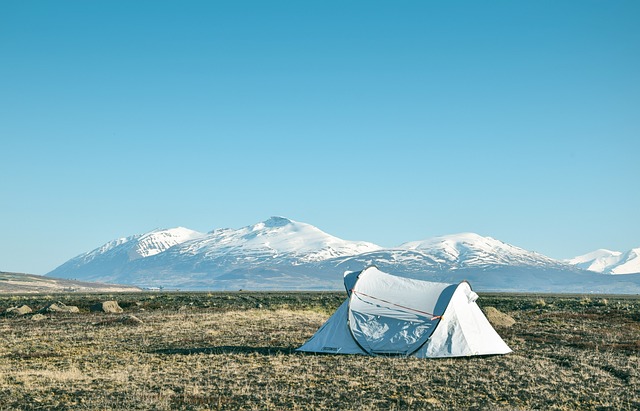 For homesteaders who may be living in isolated areas, participating in an online forum can be a way to stay connected to a larger community, reducing the sense of isolation and providing a network of virtual neighbors who are ready to offer help. In times of crisis, such as during natural disasters or economic instability, these online networks can become crucial for sharing timely updates, survival strategies, and resources.
For homesteaders who may be living in isolated areas, participating in an online forum can be a way to stay connected to a larger community, reducing the sense of isolation and providing a network of virtual neighbors who are ready to offer help. In times of crisis, such as during natural disasters or economic instability, these online networks can become crucial for sharing timely updates, survival strategies, and resources.
Another significant advantage of online prepping communities is the diversity of perspectives and solutions they bring together. Members come from different backgrounds, regions, and levels of experience, which means a wide variety of approaches to problem-solving are represented.
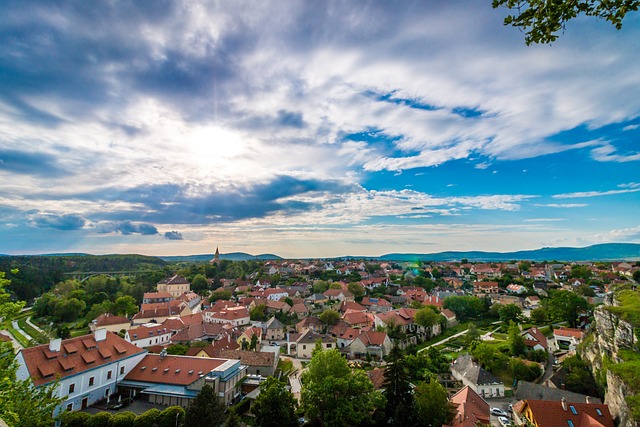 A prepper living in a suburban area might have different challenges than someone on a rural homestead, but through these forums, they can learn from each other and adapt strategies to suit their unique circumstances.
A prepper living in a suburban area might have different challenges than someone on a rural homestead, but through these forums, they can learn from each other and adapt strategies to suit their unique circumstances.
This diversity fosters creativity and innovation, as members share unconventional tips and tricks that might not be found in traditional prepping guides. For example, urban preppers can learn stealth gardening techniques from rural homesteaders, while those with limited space can discover how to maximize their storage and efficiency.
Online prepping communities and forums also facilitate the exchange of resources beyond just information. Many platforms have sections dedicated to buying, selling, or trading goods, where users can find hard-to-get equipment, bulk supplies, or even barter with other members.
 This marketplace aspect can be particularly beneficial for homesteaders looking for specialized tools or heirloom seeds that are not widely available. Moreover, users can find recommendations for reliable suppliers, discounts on prepping gear, and reviews of products, helping them make informed decisions when it comes to investing in their preparedness efforts.
This marketplace aspect can be particularly beneficial for homesteaders looking for specialized tools or heirloom seeds that are not widely available. Moreover, users can find recommendations for reliable suppliers, discounts on prepping gear, and reviews of products, helping them make informed decisions when it comes to investing in their preparedness efforts.
The sense of community that online prepping forums foster is perhaps their most valuable asset. These platforms are built on the principle of mutual aid, where members are encouraged to support one another.
This ethos of cooperation can lead to long-lasting friendships and collaborations that extend beyond the virtual world. Some online prepping communities even organize meetups, workshops, and events where members can gather in person to learn, share, and build networks of trust. Such events can help transform online connections into real-world alliances, strengthening local prepper networks and ensuring that members have a support system they can rely on.
In conclusion, online prepping communities and forums play a critical role in modern preparedness by providing a space for information sharing, mutual support, and resource exchange. For preppers and homesteaders, these platforms offer an invaluable tool for learning, connecting, and growing their skills.
 They bring together a global network of individuals who are passionate about self-sufficiency and resilience, allowing users to learn from diverse experiences and gain the confidence to face potential emergencies. Whether seeking advice on canning, looking for the best emergency radio, or finding a like-minded community, online prepping forums have become a cornerstone of the modern preparedness movement.
They bring together a global network of individuals who are passionate about self-sufficiency and resilience, allowing users to learn from diverse experiences and gain the confidence to face potential emergencies. Whether seeking advice on canning, looking for the best emergency radio, or finding a like-minded community, online prepping forums have become a cornerstone of the modern preparedness movement.
Characteristics
- Wide Reach: Open to global members.
- Knowledge Sharing: Members share information on survival skills, gear reviews, and current events.
- Anonymity: Members can remain anonymous, sharing information without disclosing personal details.
Pros and Cons
- Pros: Access to a wealth of knowledge, diverse perspectives, anonymity.
- Cons: Limited face-to-face interaction, hard to verify information, potential for misinformation.
Back to Top
How to Start an Online Prepping Community Group
Starting an online prepping community or forum is an excellent way to connect like-minded individuals who share an interest in emergency preparedness. Begin by defining the purpose and focus of your community. Decide whether it will be a general prepping platform or cater to specific interests, such as homesteading, urban survival, or off-grid living.
Having a clear direction will help attract the right members and encourage meaningful discussions. Choose a platform that suits your goals, whether it’s a social media group, dedicated forum software, or a community website.
Once you have the structure in place, start by creating engaging content to encourage participation. Write posts or articles on relevant topics like building bug-out bags, food storage tips, or alternative energy solutions.
You can also share news about recent natural disasters, new prepping gear, or survival techniques. Invite friends and fellow preppers to join and contribute, as a core group of active members can help get discussions going and set the tone for the community. Consider establishing guidelines for respectful and constructive communication to ensure a positive, helpful environment.
To grow your online prepping community, actively engage with members by responding to their posts, asking questions, and encouraging them to share their knowledge and experiences. Hosting events like webinars, Q&A sessions, or virtual workshops can also help bring members together and provide valuable learning opportunities.
Regularly update the forum with fresh content, and consider inviting experts to contribute articles or host discussions. By fostering a sense of community and shared learning, your online prepping forum can become a trusted resource for people looking to improve their preparedness skills.
Specialized Prepping Groups (Skills-Based)
What Are They?
Specialized prepping groups, also known as skills-based prepping groups, are communities that focus on developing and sharing specific skills essential for survival and self-sufficiency.
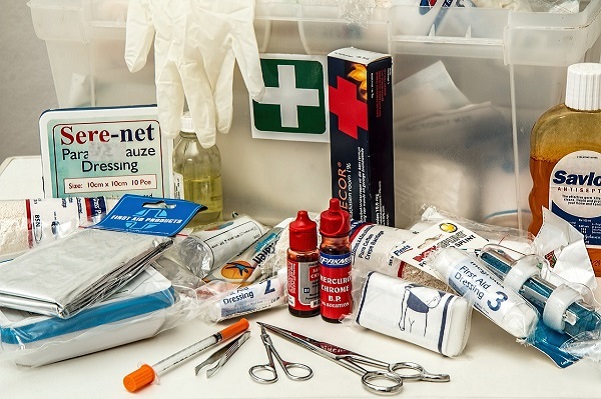 Unlike general prepping groups that might cover a wide range of preparedness topics, these specialized groups hone in on particular areas of expertise, such as first aid, blacksmithing, carpentry, herbal medicine, food preservation, or off-grid energy systems.
Unlike general prepping groups that might cover a wide range of preparedness topics, these specialized groups hone in on particular areas of expertise, such as first aid, blacksmithing, carpentry, herbal medicine, food preservation, or off-grid energy systems.
Members join these groups not only to improve their own abilities but also to contribute their knowledge to others, creating a network of experts who can rely on each other during emergencies. These groups are often structured around workshops, training sessions, and skill-sharing events where participants can learn hands-on techniques and refine their expertise.
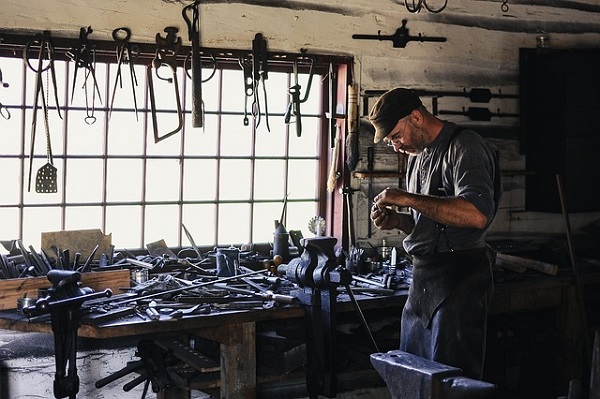 The main advantage of specialized prepping groups is the depth of knowledge and proficiency they bring to a specific area of preparedness. While general preparedness is essential, having expert-level skills in critical areas can make a significant difference during a crisis.
The main advantage of specialized prepping groups is the depth of knowledge and proficiency they bring to a specific area of preparedness. While general preparedness is essential, having expert-level skills in critical areas can make a significant difference during a crisis.
For example, a skills-based group focused on first aid and emergency medical care can train members to handle everything from minor injuries to more severe medical situations when professional healthcare may not be readily accessible.
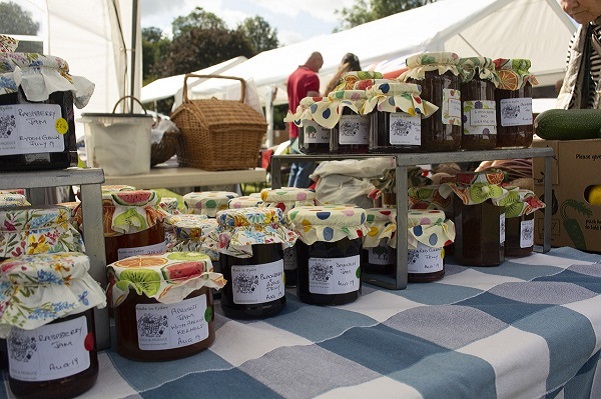 Similarly, a group specializing in food preservation techniques like canning, dehydrating, and fermenting can teach others how to store food safely and sustainably, ensuring a reliable food supply during extended emergencies. By focusing on specific skills, these groups cultivate a level of mastery that broadens the overall capabilities of the preparedness community.
Similarly, a group specializing in food preservation techniques like canning, dehydrating, and fermenting can teach others how to store food safely and sustainably, ensuring a reliable food supply during extended emergencies. By focusing on specific skills, these groups cultivate a level of mastery that broadens the overall capabilities of the preparedness community.
For preppers and homesteaders, specialized prepping groups provide an opportunity to learn from experts without having to master every skill on their own. Homesteaders, for example, may be highly skilled in gardening and livestock care but might lack experience in renewable energy systems or advanced carpentry.
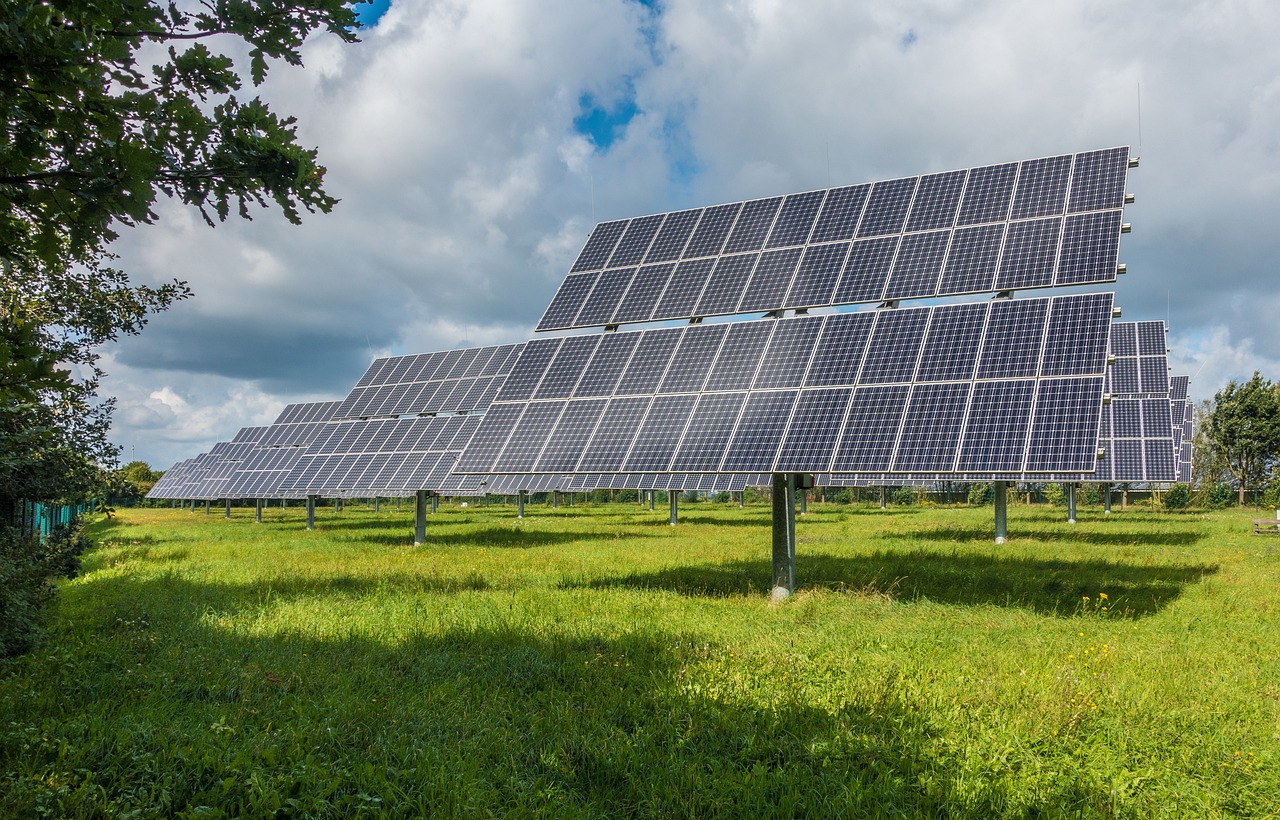 By participating in a group that focuses on solar power installation, they can acquire the knowledge needed to set up and maintain an off-grid energy source for their property. This collaborative approach allows individuals to strengthen their overall preparedness while concentrating on their core strengths, knowing they can rely on others within the group for support in areas where they have less experience.
By participating in a group that focuses on solar power installation, they can acquire the knowledge needed to set up and maintain an off-grid energy source for their property. This collaborative approach allows individuals to strengthen their overall preparedness while concentrating on their core strengths, knowing they can rely on others within the group for support in areas where they have less experience.
Specialized prepping groups are also invaluable for building local resilience. In times of crisis, having a pool of people who are experts in different skills can be the difference between surviving and thriving. These groups often function as a network of problem-solvers who can come together to address specific challenges as they arise.
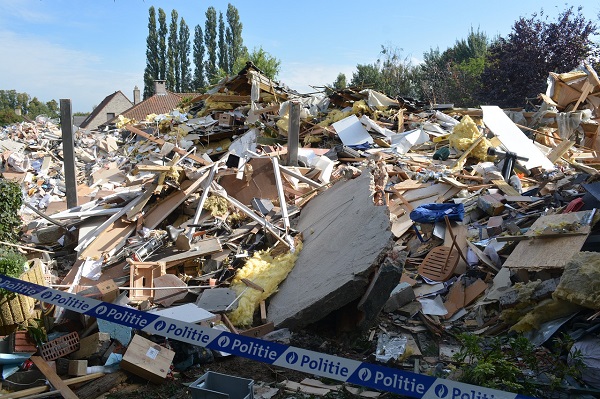 For example, during a natural disaster, a group that includes individuals skilled in structural repairs, water filtration, and communications can work together to restore vital services and support the broader community. This collaborative effort creates a more resilient and adaptive community, where members are prepared to respond quickly and effectively to various emergencies.
For example, during a natural disaster, a group that includes individuals skilled in structural repairs, water filtration, and communications can work together to restore vital services and support the broader community. This collaborative effort creates a more resilient and adaptive community, where members are prepared to respond quickly and effectively to various emergencies.
Another benefit of specialized prepping groups is the hands-on learning experience they provide. Online resources and books are useful, but nothing compares to in-person training where members can ask questions, practice skills, and receive feedback from experienced practitioners. Many of these groups organize workshops and classes that allow participants to get real-world experience in a controlled environment.
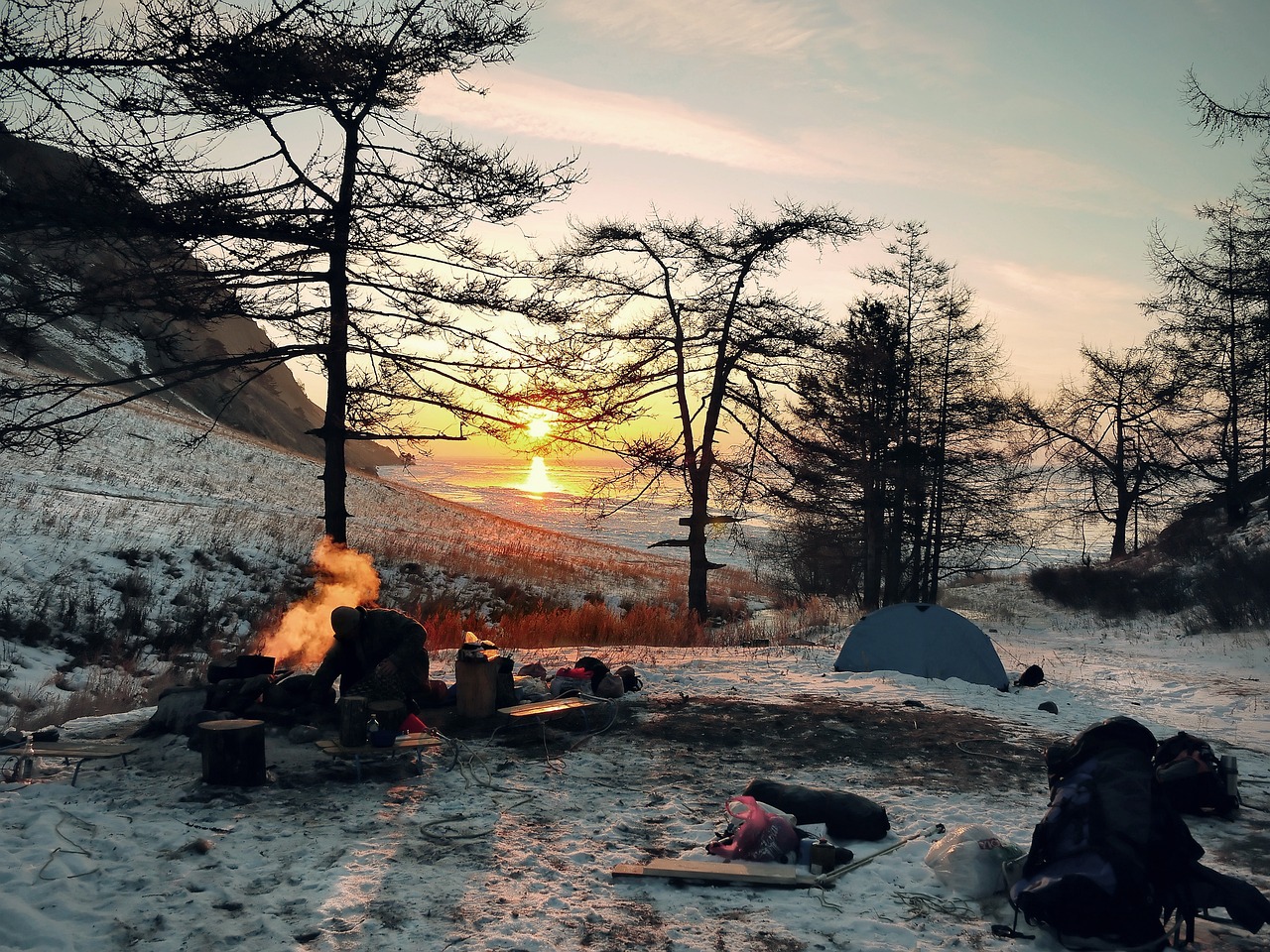 For instance, a group focusing on bush-craft and wilderness survival might conduct outdoor training sessions where members practice building shelters, starting fires, and foraging for edible plants. These experiences help to build confidence and ensure that members are prepared to apply their skills in real-life situations.
For instance, a group focusing on bush-craft and wilderness survival might conduct outdoor training sessions where members practice building shelters, starting fires, and foraging for edible plants. These experiences help to build confidence and ensure that members are prepared to apply their skills in real-life situations.
Ultimately, specialized prepping groups offer a way to cultivate a well-rounded preparedness strategy by bringing together individuals with a diverse set of skills. For preppers and homesteaders, this model provides the chance to deepen their expertise while also gaining access to a network of trusted peers who can assist in areas outside their knowledge base.
This sense of interdependence is crucial, as it reflects a holistic approach to preparedness that emphasizes cooperation, adaptability, and skill development. Whether it’s learning how to purify water, perform emergency surgery, or build a wind turbine, these specialized groups help ensure that the community has the skills needed to navigate any situation.
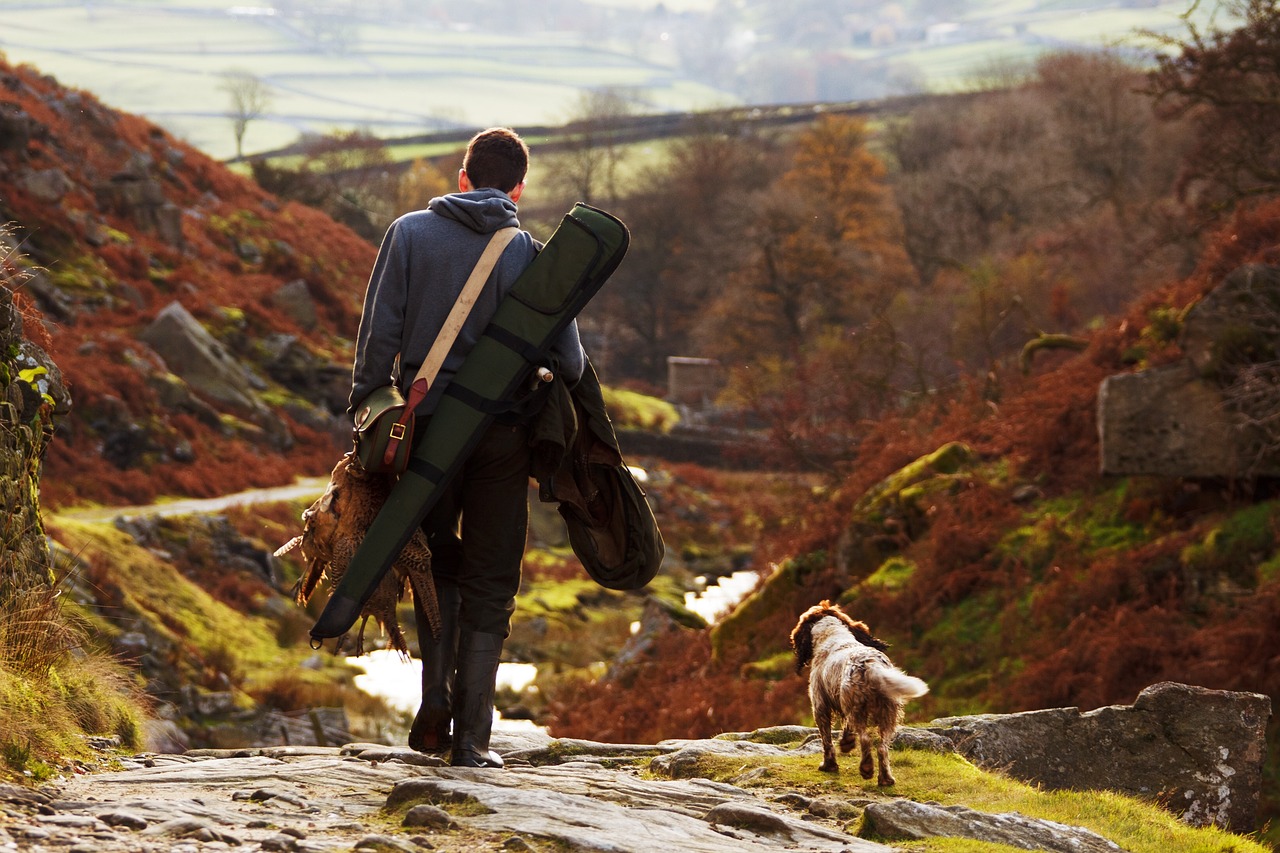 In conclusion, skills-based prepping groups are essential because they transform individual knowledge into collective strength. For preppers and homesteaders, joining such groups means gaining access to a wealth of specialized skills and creating a support network that can be relied upon during emergencies. These groups foster a culture of learning, cooperation, and hands-on experience, building a community that is not only prepared to survive but also capable of thriving in the face of adversity.
In conclusion, skills-based prepping groups are essential because they transform individual knowledge into collective strength. For preppers and homesteaders, joining such groups means gaining access to a wealth of specialized skills and creating a support network that can be relied upon during emergencies. These groups foster a culture of learning, cooperation, and hands-on experience, building a community that is not only prepared to survive but also capable of thriving in the face of adversity.
Characteristics
- Focused Skills Development: Emphasis on one skill area, like wilderness survival or permaculture.
- Professional Expertise: Some members may be professionals (medics, engineers) offering advanced knowledge.
- Training-Oriented: Frequent workshops and drills to maintain proficiency.
Pros and Cons
- Pros: In-depth knowledge, skill specialization, valuable for skill-building.
- Cons: Narrow focus, may lack other critical skills, not suitable for all preppers.
Back to Top
How to Start a Specialized Prepping Group (Skills-Based)
Starting a specialized, skills-based prepping group involves gathering individuals who want to focus on developing specific preparedness skills, such as gardening, first aid, navigation, or bush-craft.
The first step is to identify the skill set you want the group to concentrate on. Defining this focus will help you attract the right members who are eager to learn, share, and refine their abilities in that particular area.
Consider the demand and interest in the community; for example, a group focusing on herbal medicine or off-grid energy solutions might draw individuals who have expertise to share or are keen to learn these niche skills.
Once the focus is decided, reach out to potential members through local community boards, social media, or existing prepping networks. Start with an introductory meeting to set goals and establish a shared understanding of what the group aims to achieve. Discuss how members can contribute based on their current knowledge and skills, and outline the structure of the group.
For example, you might decide to hold workshops where one person leads a session on a particular topic, followed by hands-on practice. Creating a collaborative and supportive environment will encourage people to share their expertise and learn from one another.
To keep the group active, plan regular meetups or training sessions that allow members to practice skills and address real-world scenarios. For example, a group focused on first aid could have mock emergency drills, while a gardening group could visit local farms or community gardens to learn techniques firsthand.
Encourage members to share resources, tools, and experiences, and consider bringing in guest experts to provide deeper insights into complex topics. By maintaining an ongoing focus on skill development, your specialized prepping group can build a strong, knowledgeable network that is better prepared for a range of challenges.
Mutual Assistance Groups (MAGs)
What Are They?
Mutual Assistance Groups (MAGs) are small, tightly-knit communities of preppers, homesteaders, and like-minded individuals who come together to provide mutual support and aid during emergencies and times of need.
 Unlike larger, more generalized prepping groups, MAGs are often formed by individuals who already know and trust each other, creating a cohesive and reliable network that can respond quickly and efficiently when crises arise.
Unlike larger, more generalized prepping groups, MAGs are often formed by individuals who already know and trust each other, creating a cohesive and reliable network that can respond quickly and efficiently when crises arise.
The primary goal of a MAG is to pool resources, skills, and labor to enhance the overall preparedness and resilience of the group. Members collaborate on everything from food storage and water purification to security planning, medical care, and communication strategies, ensuring that each member is supported and protected.
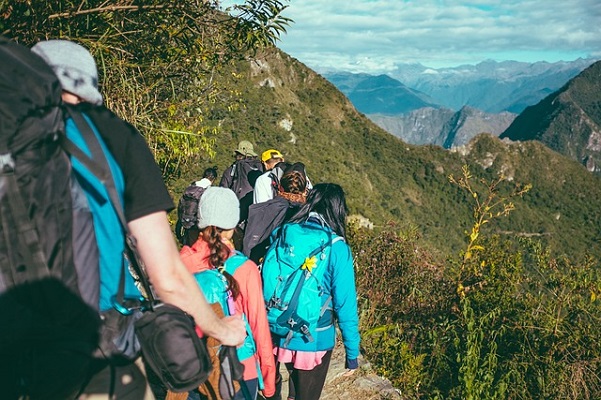 One of the main advantages of MAGs is the high level of trust and cooperation that comes from their smaller size and close-knit nature. Because members typically know one another personally, there is a stronger sense of accountability and reliability. This trust is essential when sharing sensitive information about preparedness plans, resources, and vulnerabilities.
One of the main advantages of MAGs is the high level of trust and cooperation that comes from their smaller size and close-knit nature. Because members typically know one another personally, there is a stronger sense of accountability and reliability. This trust is essential when sharing sensitive information about preparedness plans, resources, and vulnerabilities.
It also ensures that when a crisis occurs, members can act quickly without hesitation, knowing that their group has their back. For example, in the event of a natural disaster, MAG members might already have a plan in place for checking on each other’s safety, securing properties, and pooling supplies to ensure that no one is left without essential resources.
 For preppers and homesteaders, MAGs offer a way to extend their self-sufficiency without needing to master every skill or acquire every resource independently. Prepping can be a complex and multifaceted endeavor, requiring knowledge in areas such as agriculture, first aid, mechanical repair, and security.
For preppers and homesteaders, MAGs offer a way to extend their self-sufficiency without needing to master every skill or acquire every resource independently. Prepping can be a complex and multifaceted endeavor, requiring knowledge in areas such as agriculture, first aid, mechanical repair, and security.
MAGs allow members to specialize in certain areas, knowing that they can rely on others in the group to fill in the gaps. For example, one member might be skilled in gardening and livestock care, while another might have expertise in first aid and emergency medicine. This division of labor means that the group, as a whole, can achieve a level of preparedness that would be difficult to accomplish alone.
 Another critical benefit of MAGs is their ability to pool resources for greater efficiency and cost savings. Preparing for emergencies can be expensive, but when a group of people shares the burden, it becomes much more manageable. Members can bulk-purchase supplies, share tools, or invest in community assets such as water filtration systems, solar panels, or backup generators.
Another critical benefit of MAGs is their ability to pool resources for greater efficiency and cost savings. Preparing for emergencies can be expensive, but when a group of people shares the burden, it becomes much more manageable. Members can bulk-purchase supplies, share tools, or invest in community assets such as water filtration systems, solar panels, or backup generators.
This collaborative approach not only reduces costs but also ensures that the group has access to high-quality, reliable equipment that might be beyond the budget of individual preppers. Additionally, sharing resources allows MAGs to store and maintain supplies more effectively, reducing the risk of shortages or waste.
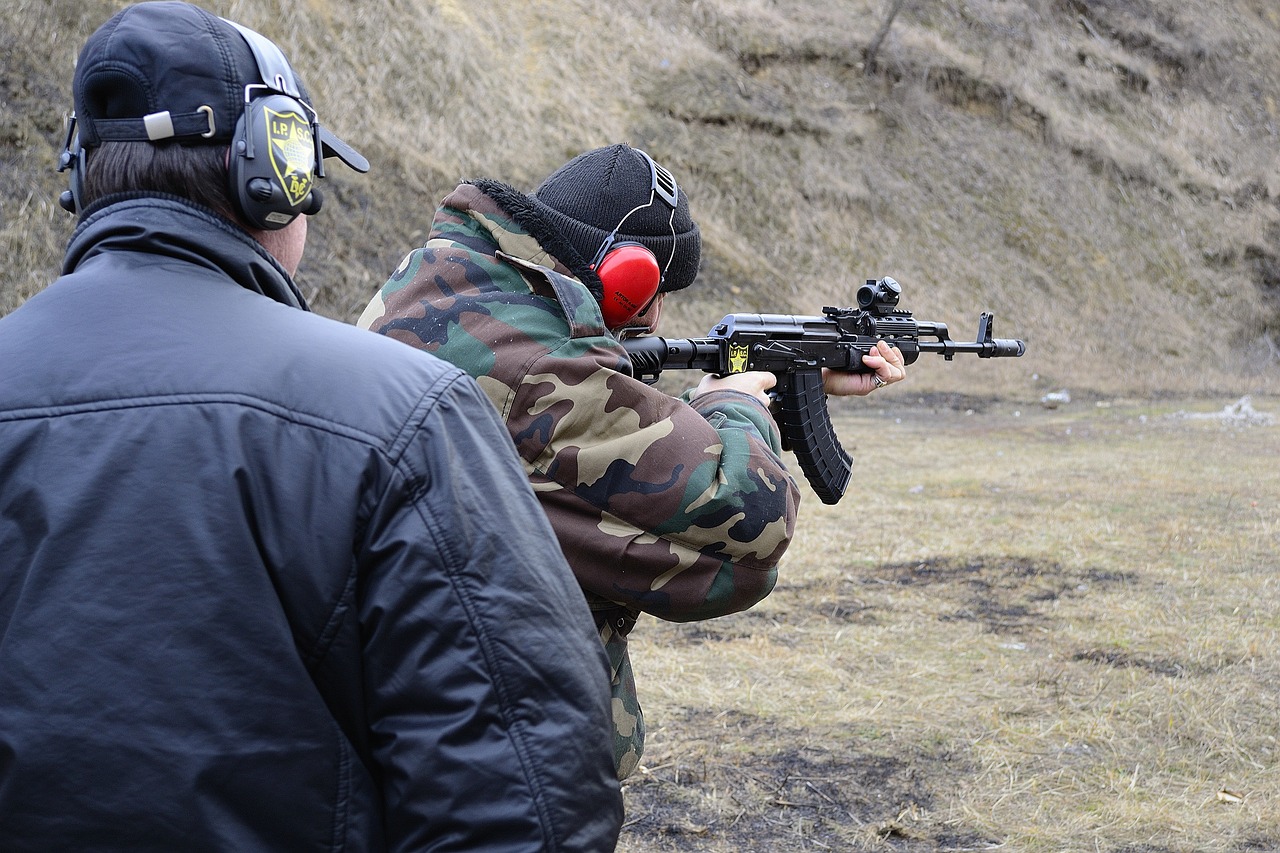 Security is another area where MAGs shine. During emergencies, security concerns such as theft, looting, and civil unrest can become significant threats. MAGs can establish security protocols, patrols, and emergency communication plans to protect their members and resources.
Security is another area where MAGs shine. During emergencies, security concerns such as theft, looting, and civil unrest can become significant threats. MAGs can establish security protocols, patrols, and emergency communication plans to protect their members and resources.
With a smaller, well-coordinated group, it is easier to develop and implement security measures that are both effective and adaptable. Members can train together in self-defense, first aid, and emergency drills, ensuring that everyone knows how to respond if a threat arises. This level of coordination is challenging to achieve in larger, less personal groups, making MAGs particularly effective at maintaining safety and order.
 The sense of community that comes from being part of a MAG also contributes to mental and emotional resilience. Preparing for emergencies can sometimes feel isolating, and the stress of facing potential crises can take a toll on mental health. Being part of a MAG means having a support system that can offer reassurance, guidance, and practical help.
The sense of community that comes from being part of a MAG also contributes to mental and emotional resilience. Preparing for emergencies can sometimes feel isolating, and the stress of facing potential crises can take a toll on mental health. Being part of a MAG means having a support system that can offer reassurance, guidance, and practical help.
Members share not only their skills and resources but also their worries, plans, and hopes, creating a sense of solidarity and purpose. This social connection can be a powerful motivator, encouraging members to stay committed to their preparedness efforts and to look out for each other.
In essence, Mutual Assistance Groups are a practical and effective way for preppers and homesteaders to enhance their preparedness through cooperation, trust, and shared responsibility. By pooling their skills, resources, and labor, MAG members can achieve a level of resilience and security that is difficult to obtain alone.
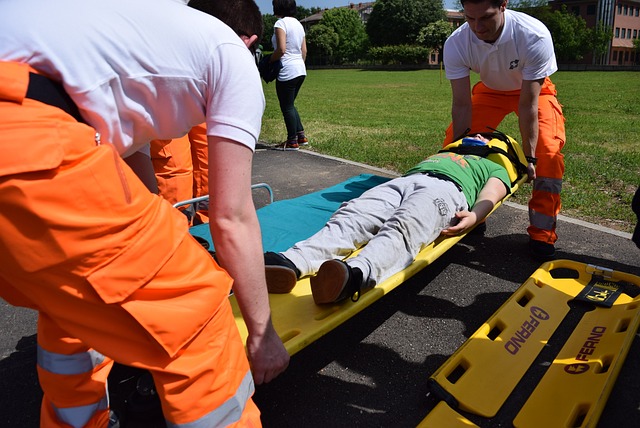 For homesteaders, who may already be striving for self-sufficiency, joining or forming a MAG can provide the additional support needed to navigate complex emergencies. In times of crisis, these groups can mean the difference between struggling to survive and thriving together, proving that there is strength in numbers and that cooperation is key to resilience.
For homesteaders, who may already be striving for self-sufficiency, joining or forming a MAG can provide the additional support needed to navigate complex emergencies. In times of crisis, these groups can mean the difference between struggling to survive and thriving together, proving that there is strength in numbers and that cooperation is key to resilience.
Characteristics
- Structured Roles: Each member has a designated role (security, medical, logistics).
- Commitment and Responsibility: Members are expected to contribute actively.
- Highly Prepared: Regular meetings, drills, and resource stockpiling.
Pros and Cons
- Pros: Highly organized, prepared for varied crises, clear roles.
- Cons: Requires high commitment, may be exclusive.
Back to Top
How to Start a Mutual Assistance Group (MAG)
Starting a Mutual Assistance Group (MAG) involves bringing together people who share a commitment to mutual support during emergencies or challenging situations.
The first step is to define the scope and purpose of the group. Decide whether it will be a neighborhood-based MAG focusing on local resilience, or a broader network of individuals who share specific interests like farming, security, or emergency medical care. Clearly outlining the group’s mission will help attract people who are serious about preparedness and willing to collaborate on shared goals.
Begin by reaching out to like-minded individuals in your community or through online platforms. Arrange an initial meeting to introduce the concept of a MAG, explaining how mutual assistance can enhance the group’s collective strength.
Use this opportunity to discuss the skills, resources, and assets that each member can contribute, such as knowledge in first aid, access to equipment, or land for growing food. Establish clear communication channels, like a dedicated messaging app or regular in-person meetings, to keep members connected and informed.
As the group forms, set up a basic structure with defined roles and responsibilities. For example, assign members to focus on areas like food production, security, or medical response, based on their skills and interests. Develop a preparedness plan that outlines how the group will act in different scenarios, from short-term disruptions to long-term crises.
Regular training sessions, group activities, and skill-sharing workshops can help strengthen the group’s readiness and foster trust among members. By maintaining an organized, cooperative approach, your MAG can become a reliable network that enhances safety and resilience for everyone involved.
Survivalist Communities
What Are They?
Survivalist communities are groups of individuals or families who come together to live in a way that emphasizes self-sufficiency, preparedness, and resilience in the face of potential emergencies, disasters, or societal disruptions.
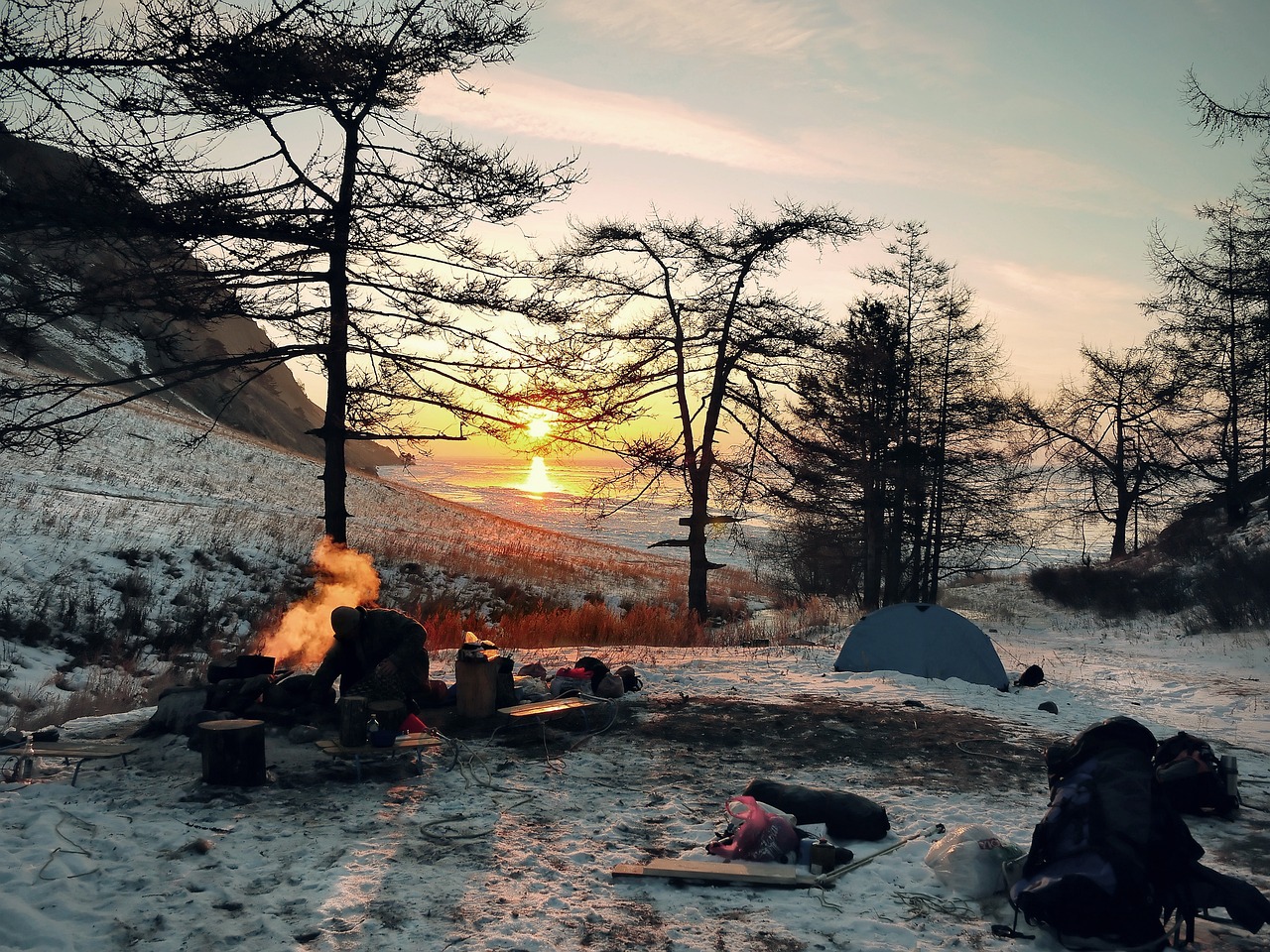 These communities are often situated in rural or semi-remote areas, allowing members to live off the land, grow their own food, and establish systems that reduce dependence on external resources.
These communities are often situated in rural or semi-remote areas, allowing members to live off the land, grow their own food, and establish systems that reduce dependence on external resources.
While the term “survivalist” may evoke images of rugged, off-the-grid living, these communities can vary widely in their setup, from tight-knit small groups to larger, organized settlements with shared infrastructure. The core philosophy, however, remains the same: to be prepared for any situation that might threaten safety, security, and the ability to sustain a quality life.
The primary advantage of survivalist communities is their focus on long-term self-reliance. By pooling resources and working collaboratively, these communities can develop robust systems that provide food, water, shelter, and energy, regardless of what is happening in the wider world.
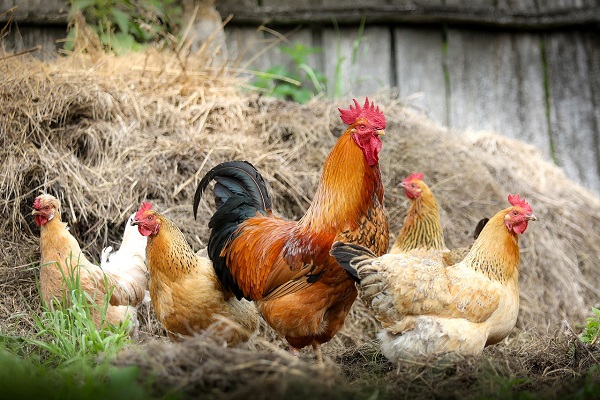 Members often grow their own crops, raise livestock, harness renewable energy, and build water purification systems, creating a sustainable way of life that can function independently of modern supply chains. This level of preparation is invaluable during crises such as economic collapse, power grid failures, or natural disasters, where access to basic needs might be severely limited or cut off entirely.
Members often grow their own crops, raise livestock, harness renewable energy, and build water purification systems, creating a sustainable way of life that can function independently of modern supply chains. This level of preparation is invaluable during crises such as economic collapse, power grid failures, or natural disasters, where access to basic needs might be severely limited or cut off entirely.
For preppers and homesteaders, joining a survivalist community means having access to shared expertise and resources, significantly increasing their odds of thriving during difficult times.
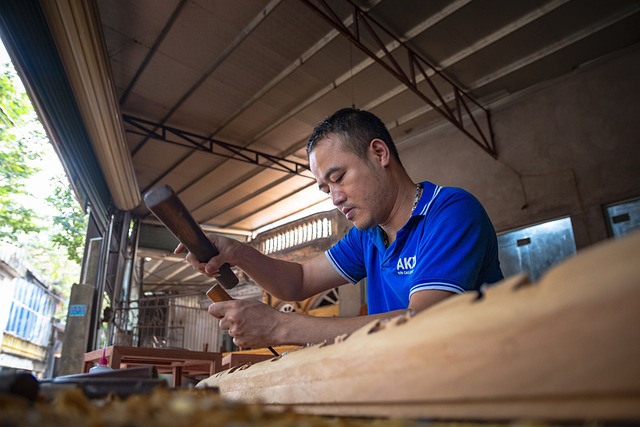 Another important aspect of survivalist communities is the division of labor and skills. Living self-sufficiently requires a wide range of skills, from farming and carpentry to mechanics, first aid, and security. In a survivalist community, members can specialize in certain areas, which allows for a more efficient and organized approach to managing daily life and emergency situations. For example, one person might be responsible for animal husbandry, while another might focus on renewable energy systems.
Another important aspect of survivalist communities is the division of labor and skills. Living self-sufficiently requires a wide range of skills, from farming and carpentry to mechanics, first aid, and security. In a survivalist community, members can specialize in certain areas, which allows for a more efficient and organized approach to managing daily life and emergency situations. For example, one person might be responsible for animal husbandry, while another might focus on renewable energy systems.
This division of labor not only ensures that each critical area is managed by someone knowledgeable but also reduces the individual burden on members, allowing everyone to contribute to the community’s overall resilience without feeling overwhelmed.
 Security is another key benefit of survivalist communities. In times of crisis, rural or remote living can provide a buffer from external threats like civil unrest, looting, or other forms of societal breakdown. However, isolation can also make it challenging to defend resources. Survivalist communities address this by developing coordinated security strategies, such as surveillance systems, patrols, and communication protocols to alert members of potential dangers.
Security is another key benefit of survivalist communities. In times of crisis, rural or remote living can provide a buffer from external threats like civil unrest, looting, or other forms of societal breakdown. However, isolation can also make it challenging to defend resources. Survivalist communities address this by developing coordinated security strategies, such as surveillance systems, patrols, and communication protocols to alert members of potential dangers.
 Members are often trained in self-defense, emergency response, and tactical planning, enabling them to work together to protect their community.
Members are often trained in self-defense, emergency response, and tactical planning, enabling them to work together to protect their community.
This level of preparedness makes survivalist communities a more secure option than isolated homesteads, where individuals might struggle to defend themselves against determined threats.
For homesteaders, survivalist communities offer a lifestyle that aligns closely with their values of sustainability and connection to the land, but with the added benefit of community support. Homesteaders who join or form survivalist communities can tap into a network of like-minded people who share their commitment to living off the grid and reducing reliance on external systems.
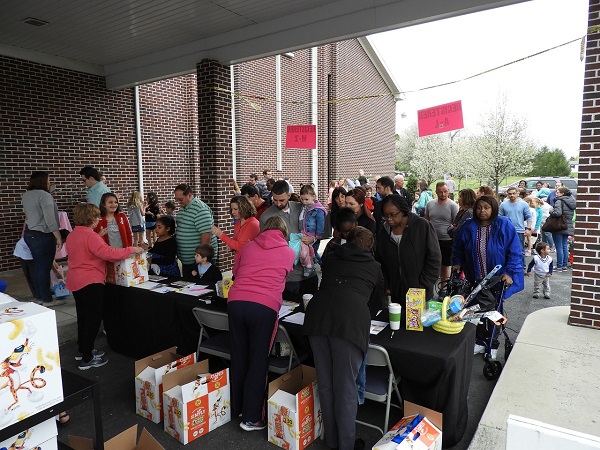 They can also benefit from shared projects that would be difficult to achieve alone, such as building greenhouses, constructing solar or wind power installations, or maintaining larger-scale agricultural operations. This collaborative approach not only improves productivity but also creates a strong, interdependent network that can withstand hardships more effectively than isolated efforts.
They can also benefit from shared projects that would be difficult to achieve alone, such as building greenhouses, constructing solar or wind power installations, or maintaining larger-scale agricultural operations. This collaborative approach not only improves productivity but also creates a strong, interdependent network that can withstand hardships more effectively than isolated efforts.
Moreover, survivalist communities provide a sense of belonging and purpose, which can be just as important as physical preparedness. Preparing for worst-case scenarios can be mentally and emotionally taxing, and the support of a close-knit group can make a significant difference.
 Community members can share knowledge, offer encouragement, and support one another, creating a stable, cooperative environment where people feel safer and less alone. This social aspect fosters resilience, as it helps to build trust and mutual understanding, which are crucial during times of stress and uncertainty. Knowing that they are part of a group that shares their vision and values can give members the peace of mind needed to face future challenges confidently.
Community members can share knowledge, offer encouragement, and support one another, creating a stable, cooperative environment where people feel safer and less alone. This social aspect fosters resilience, as it helps to build trust and mutual understanding, which are crucial during times of stress and uncertainty. Knowing that they are part of a group that shares their vision and values can give members the peace of mind needed to face future challenges confidently.
In conclusion, survivalist communities are essential for those who seek to build a life of self-sufficiency, preparedness, and security. For preppers and homesteaders, these communities offer the best of both worlds: the opportunity to live sustainably off the land while benefiting from the resources, skills, and support of a broader network. By working together, members can create a resilient way of life that can weather a wide range of challenges, from short-term emergencies to prolonged disruptions.
The collaboration, shared expertise, and unity found in survivalist communities make them a powerful model for modern preparedness, proving that strength lies not just in individual readiness but in collective resilience.
Characteristics
- Self-Defense Focused: Strong emphasis on security, firearms, and defense training.
- Long-Term Survival: Prepares for extended crises where outside help is unlikely.
- Isolation: Often located far from urban centers to avoid crowds and maintain privacy.
Pros and Cons
- Pros: High level of preparedness, self-sufficient, low reliance on outside systems.
- Cons: May have intense security protocols, less accessible for the average person.
Back to Top
How to Start a Survivalist Community Group
Starting a survivalist community involves creating a group of individuals or families committed to living more self-sufficiently and being prepared for long-term survival scenarios. The first step is to establish a clear vision for the community.
Define what it means to be a member and what the community’s core values and goals are. Some survivalist communities might focus on off-grid living and sustainability, while others may prioritize defense, resource management, or specific survival skills. Clarifying these principles will help attract people who share the same mindset and are committed to building a cohesive, long-term community.
Next, scout for a suitable location that can support your community’s lifestyle. Consider factors like access to natural resources, distance from urban centers, and the potential for self-sustainability. Once you’ve identified a location, begin reaching out to potential members through local networks, prepping forums, and social media.
Arrange meetings to discuss the community’s goals, the skills and resources each member can contribute, and how responsibilities will be shared. It’s important to establish a basic framework for governance, decision-making, and conflict resolution to ensure smooth operation as the group grows.
To build trust and cooperation, organize regular group activities, such as training sessions on gardening, animal husbandry, hunting, or alternative energy. Consider also running scenario-based drills to prepare for various emergencies, such as natural disasters or security threats. Encourage members to share knowledge and resources, fostering a culture of mutual support.
Over time, this cooperation can develop into a resilient, self-sufficient community capable of thriving independently. By focusing on strong leadership, clear planning, and a shared vision, your survivalist community can become a model of preparedness and sustainability.
Financial Prepping Groups
What Are They?
Financial prepping groups are communities of individuals or families who come together to prepare for potential economic disruptions, financial crises, or periods of economic instability.
 Unlike traditional prepping, which often focuses on physical survival skills like food storage and first aid, financial prepping emphasizes economic resilience, resource allocation, and monetary strategies to endure and thrive through uncertain financial times.
Unlike traditional prepping, which often focuses on physical survival skills like food storage and first aid, financial prepping emphasizes economic resilience, resource allocation, and monetary strategies to endure and thrive through uncertain financial times.
These groups share a commitment to financial preparedness, working together to develop strategies for debt management, alternative investments, resource pooling, and collaborative financial planning.
Regular meetings, workshops, and discussions are common practices, where members share insights on topics such as inflation hedging, precious metals investing, digital currencies, and bartering.
The Need for Financial Prepping Groups
The concept of financial prepping groups is based on the belief that economic challenges—whether caused by inflation, unemployment, stock market crashes, or currency devaluation—can have widespread and lasting impacts.
 By banding together, individuals can create a more resilient financial safety net. For example, during economic downturns, members of these groups can provide mutual support through skill-sharing, resource pooling, and bartering, lessening the impact of financial instability.
By banding together, individuals can create a more resilient financial safety net. For example, during economic downturns, members of these groups can provide mutual support through skill-sharing, resource pooling, and bartering, lessening the impact of financial instability.
A financial prepping group might focus on buying and storing precious metals like gold or silver as a hedge against inflation. Others may educate members on building multiple streams of income, such as freelancing, investing in real estate, or starting small businesses. By diversifying income and assets, members can reduce individual risk and increase the group’s overall financial stability.
How Financial Prepping Groups Operate
Unlike typical investment clubs, financial prepping groups prioritize long-term resilience over short-term gains. Members collaborate on strategies to minimize debt, manage investments, and understand the risks and rewards associated with various financial products.
 Additionally, these groups explore non-traditional financial tools, such as digital currencies or local bartering systems, to create flexibility during economic upheavals.
Additionally, these groups explore non-traditional financial tools, such as digital currencies or local bartering systems, to create flexibility during economic upheavals.
Some financial prepping groups organize regular workshops on essential topics like financial planning, tax strategies, and emergency savings. Others might bring in guest speakers, such as financial advisors, economists, or tax professionals, to provide deeper insights into managing personal and community finances during crises.
Benefits of Financial Prepping Groups
The primary benefit of a financial prepping group is the opportunity to gain diverse financial knowledge. By pooling resources, members can afford to bring in expert advisors and invest in educational resources that might be out of reach for individuals. They also have access to a network of people who can offer practical tips and firsthand experiences on managing financial crises.
 Another advantage is the ability to leverage group buying power. For instance, members might collectively purchase bulk supplies, invest in essential tools, or buy land to start community projects. This approach reduces costs and provides security through shared ownership and collaborative investments.
Another advantage is the ability to leverage group buying power. For instance, members might collectively purchase bulk supplies, invest in essential tools, or buy land to start community projects. This approach reduces costs and provides security through shared ownership and collaborative investments.
Moreover, these groups can create informal insurance systems, where members agree to support one another in times of financial distress. For example, if one member loses a job, others in the group may offer temporary work opportunities, housing assistance, or shared resources to help bridge the gap until stability is restored.
Characteristics
Focus on Financial Stability: Strategies for debt management, investment, and income diversification.
Resource Sharing: Bulk purchases, community investments, and skill-sharing.
Emphasis on Education: Regular workshops on economic resilience, tax planning, and financial strategies.
Pros and Cons
Pros: Access to diverse financial knowledge, shared resources, increased resilience through collaboration.
Cons: Potential for disagreements on investment strategies, the complexity of managing group finances, reliance on individual contributions and trust.
Back to Top
How to Start a Financial Prepping Group
Starting a financial prepping group begins with gauging interest among your network. Talk to friends, family, or neighbors to find out who shares concerns about economic stability. Use local social media groups, community boards, or online forums to invite people to an initial meeting.
 At your first gathering, explain the purpose of the group—building a local support network to enhance financial preparedness. Discuss common financial concerns like managing debt, inflation risks, or alternative investment opportunities. Encourage open dialogue so that everyone can voice their priorities and ideas.
At your first gathering, explain the purpose of the group—building a local support network to enhance financial preparedness. Discuss common financial concerns like managing debt, inflation risks, or alternative investment opportunities. Encourage open dialogue so that everyone can voice their priorities and ideas.
As the group forms, consider organizing regular meetings focused on specific financial topics, such as creating emergency funds, understanding the benefits of precious metals, or learning the basics of cryptocurrencies. Invite experts to provide insights, and organize activities like investment workshops, bartering training, or collective planning for economic downturns.
By maintaining open communication and a spirit of collaboration, your financial prepping group can grow into a strong community that supports its members in navigating the complexities of economic challenges.
Summary
In an unpredictable economic environment, financial prepping groups represent a proactive approach to safeguarding personal and community wealth. While no one can predict the future, having a plan for economic resilience can mean the difference between struggling through a financial crisis and navigating it with confidence.
 By forming or joining a financial prepping group, you can gain the knowledge, resources, and support needed to face economic challenges head-on. Whether through shared investments, skill-sharing, or group education, these communities help ensure that everyone involved has the tools and strategies to thrive, even when financial systems are unstable.
By forming or joining a financial prepping group, you can gain the knowledge, resources, and support needed to face economic challenges head-on. Whether through shared investments, skill-sharing, or group education, these communities help ensure that everyone involved has the tools and strategies to thrive, even when financial systems are unstable.
Choosing the Right Prepping Community
Choosing the right prepping community group type depends on your personal goals, skills, and preparedness philosophy. Start by identifying what you hope to gain from joining or starting a group.
If you’re looking for local support and want to build strong ties with neighbors, a neighborhood prepper group might be ideal. These groups focus on local resilience, allowing members to share resources and skills and quickly respond to emergencies.
Alternatively, if your priority is to prepare your family unit, a family-based prepping group can help you develop a cohesive plan that takes into account the specific needs and strengths of each family member.
For those seeking a broader network, online prepping communities provide an opportunity to connect with people from various locations who share your interests. These platforms are great for learning new skills, sharing advice, and accessing a wide range of expertise.
Specialized prepping groups, on the other hand, cater to individuals looking to hone specific skills like gardening, alternative energy, or emergency medical care. Joining or starting a skills-based group can help you become proficient in areas crucial to survival, and you’ll benefit from hands-on training and expert insights.
If you’re interested in more structured, long-term commitments, consider joining a Mutual Assistance Group (MAG) or a survivalist community.
MAGs involve a network of people who agree to support each other during emergencies, sharing resources, skills, and responsibilities. Survivalist communities often focus on long-term self-sufficiency and off-grid living, making them a good fit for those committed to a lifestyle of independence and sustainability.
By evaluating your own priorities and preparedness philosophy, you can choose a group that aligns with your goals and provides the community, skills, and resources you need to enhance your resilience.
Factors to Consider
- Goals and Values: Identify what you hope to achieve—short-term emergency support, long-term self-sufficiency, or skill-building.
- Skills & Resources: Choose a group that complements your skills and shares resources equitably.
- Commitment Level: Some groups require higher time and resource commitments than others.
- Location: Proximity may be important; local groups offer fast support, while online groups offer flexibility.
Conclusion
Prepping groups come in various forms, each offering unique benefits depending on your goals and interests. Neighborhood prepper groups focus on building local resilience, allowing members to quickly respond to emergencies and share resources, while family-based groups emphasize trust and collaboration within a close-knit unit.
For those seeking a broader network, online prepping communities provide a platform to share knowledge, tips, and updates on survival skills. Specialized prepping groups, on the other hand, cater to individuals looking to develop specific skills, such as gardening, first aid, or alternative energy, offering hands-on learning and expert insights.
More structured options include Mutual Assistance Groups (MAGs), where members commit to supporting each other with shared resources and skills, and survivalist communities, which often focus on long-term self-sufficiency and off-grid living. Homesteading groups similarly emphasize sustainable living but with a focus on traditional farming, gardening, and craftsmanship.
Choosing the right group depends on your preparedness philosophy, skills, and lifestyle preferences. By aligning with a community that matches your goals, you can build valuable connections, deepen your skills, and strengthen your overall resilience.

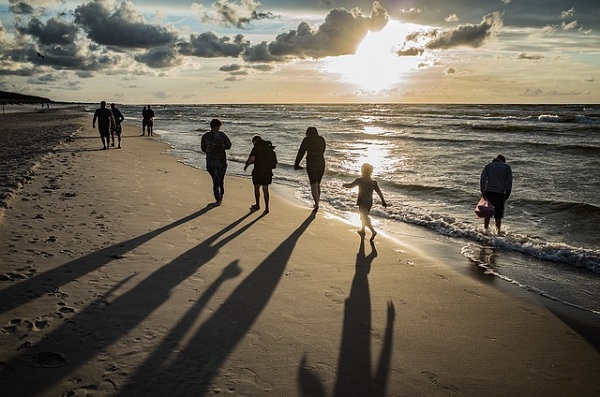

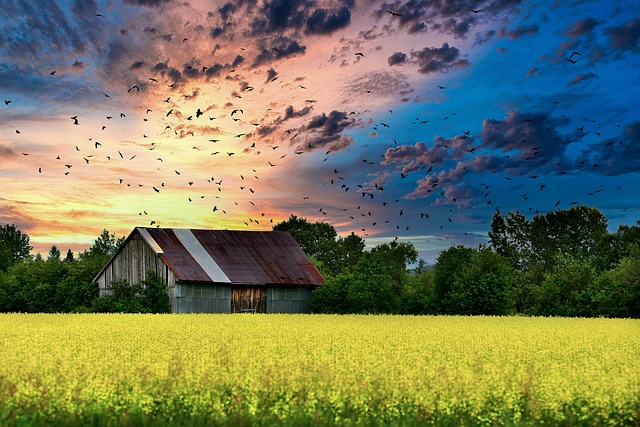 Unlike urban prepping groups, which may need to rely more on stored supplies due to limited space, homesteading communities focus on continuous, sustainable living practices that can support long-term survival. Members of these communities share skills, resources, and labor, building a network that enhances the resilience and security of everyone involved.
Unlike urban prepping groups, which may need to rely more on stored supplies due to limited space, homesteading communities focus on continuous, sustainable living practices that can support long-term survival. Members of these communities share skills, resources, and labor, building a network that enhances the resilience and security of everyone involved.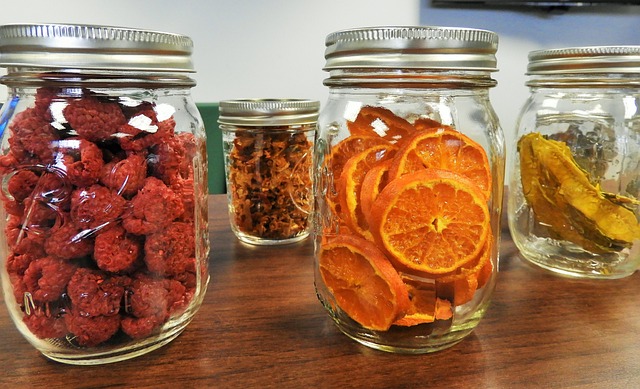 This approach not only ensures a steady supply of food but also allows members to develop skills that are crucial for long-term survival, such as gardening, animal husbandry, food preservation, and water management. For example, a community might collectively own a large garden or several greenhouses, enabling them to grow a wide variety of crops and store surplus for future use. This cooperative approach allows for efficient use of resources and provides a safety net in case individual members face challenges like crop failures or livestock losses.
This approach not only ensures a steady supply of food but also allows members to develop skills that are crucial for long-term survival, such as gardening, animal husbandry, food preservation, and water management. For example, a community might collectively own a large garden or several greenhouses, enabling them to grow a wide variety of crops and store surplus for future use. This cooperative approach allows for efficient use of resources and provides a safety net in case individual members face challenges like crop failures or livestock losses.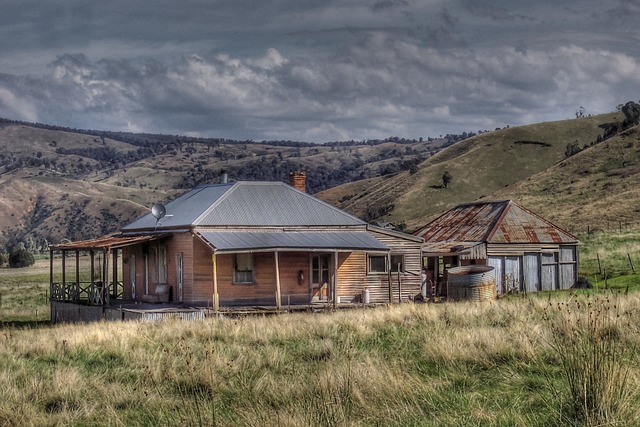 For example, one family might excel in dairy farming and trade milk, cheese, or butter with another family that specializes in woodworking or metalworking. This barter system helps diversify the resources available to each member, making the community as a whole more adaptable and resilient.
For example, one family might excel in dairy farming and trade milk, cheese, or butter with another family that specializes in woodworking or metalworking. This barter system helps diversify the resources available to each member, making the community as a whole more adaptable and resilient.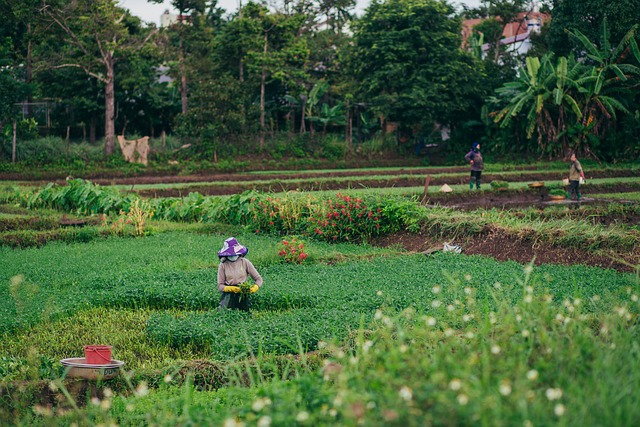 This focus on practical, hands-on skills not only enhances the community’s self-sufficiency but also helps preserve a way of life that is less dependent on modern conveniences. For homesteaders, this aspect of rural prepping communities aligns with their desire to live sustainably and maintain a connection to the land.
This focus on practical, hands-on skills not only enhances the community’s self-sufficiency but also helps preserve a way of life that is less dependent on modern conveniences. For homesteaders, this aspect of rural prepping communities aligns with their desire to live sustainably and maintain a connection to the land.
This is an excellent posting! Very informative.